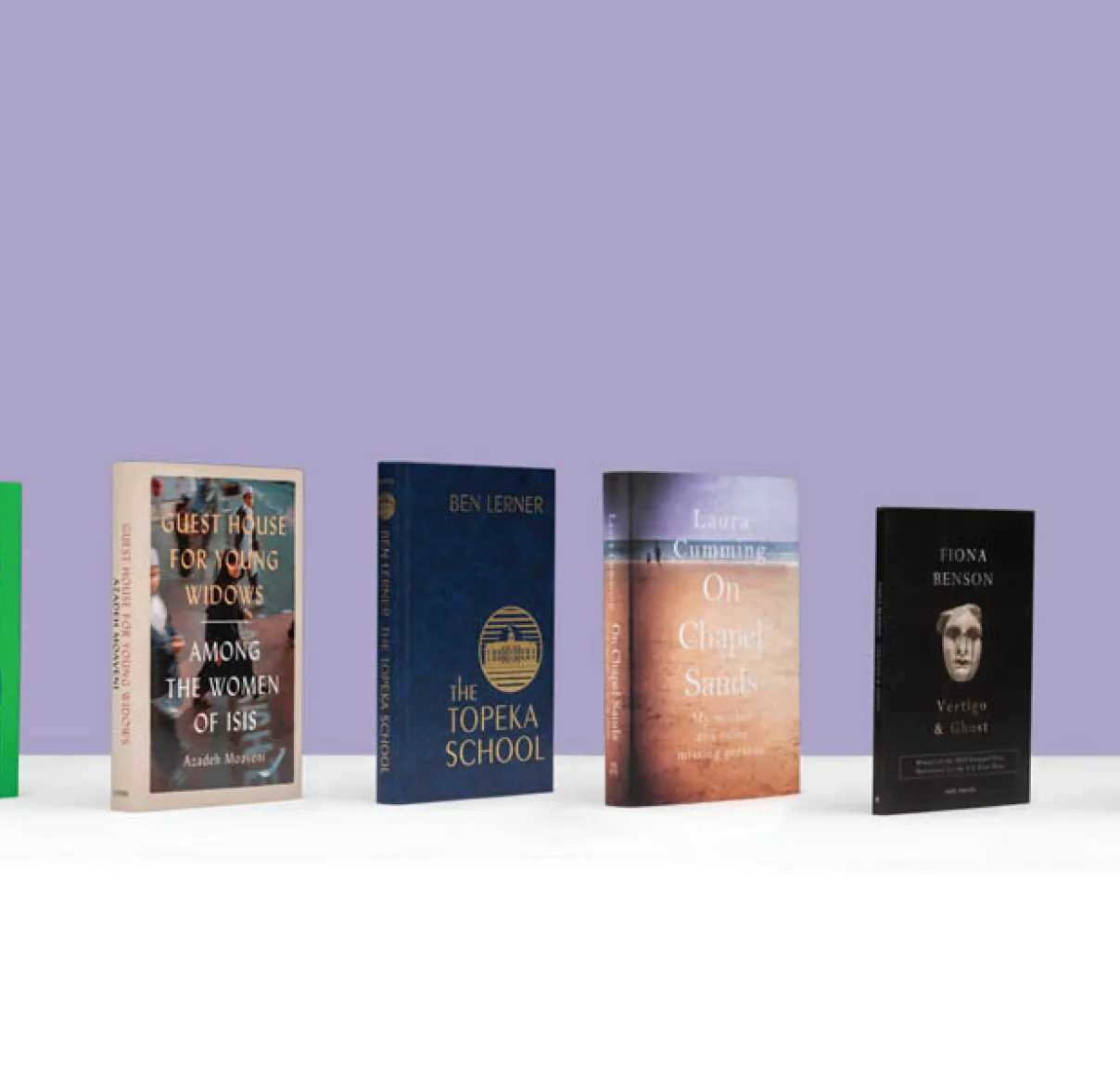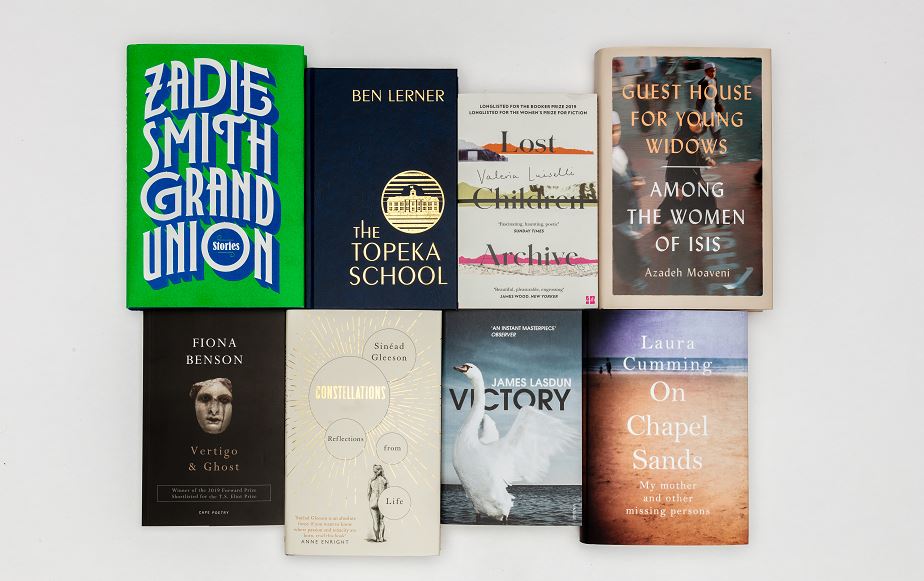Writing in the time of corona
<p>In March, Paul Farley, Chair of Judges for the Rathbones Folio Prize 2020, delivered the prize-giving speech from his Lancashire garden. “You’ll have to <em>imagine</em> there’s a party — a podium, flutes of house prosecco, the din of assembled guests,” he said.</p>

Article last updated 30 September 2025.
In March, Paul Farley, Chair of Judges for the Rathbones Folio Prize 2020, delivered the prize-giving speech from his Lancashire garden. “You’ll have to imagine there’s a party — a podium, flutes of house prosecco, the din of assembled guests,” he said.
The UK had gone into lockdown a week earlier, with in-person events cancelled nationwide. Rathbones Folio Prize winner Valeria Luiselli accepted the award from her kitchen, without the audible support of an audience. It was not the ceremony she deserved, as the first woman to win the prize since its inception in 2013, but she used her speech to encourage and to remind viewers of the power of books.
“I am not delighted… But I am deeply grateful to receive this prize,” she said. “And, more than anything, I am relieved, because giving a literary prize right now means that we believe in what we’re doing. It means that we believe in books as the vehicles of something much greater than us, something that will outlive us.
“ Giving a literary prize right now means that we believe in what we're doing.”“Literature is always and again revealing to us in times of uncertainty and fear about what we can do, what we can reach for inside of ourselves and in community with others — a kind of fierce drive, a commitment to collectively reimagine the narrative of our everydayness, to work our way through despair and senselessness and fear to shape words, give shape to words, create new thoughts with them and find new meaning.”
A written response
While Luiselli eloquently articulated the importance of literature during difficult times, many writers have questioned their purpose while watching workers on the front line.
“Almost instantly, I was aware of my uselessness,” says Zadie Smith, reflecting on the outbreak. “Novelists always feel to some degree useless, but I think it’s compounded, particularly in revolutionary times.”
Smith reacted in the only way she knew she could — she wrote a book. Just months after her first short story collection, Grand Union, was shortlisted for the Rathbones Folio Prize, she produced Intimations, a collection of essays responding to the early months of the pandemic. Proceeds from sales are being donated to the Equal Justice Initiative and the COVID-19 Emergency Relief Fund for New York.
“I suddenly thought of it as a way of participating, of raising money, of being active,” says Smith.
Creativity in crisis
Smith may be an anomaly — many writers have found their energy deflated by the pandemic and have hardly managed a sentence. Rather than attempt a feat in the realm of Intimations, novelists Kit de Waal and Sarah Perry accepted their lack of motivation for what it was.
“I haven’t written anything since this crisis started, but I know it will come back,” says de Waal. Instead she is using the time to read, listen and process unfurling events. “There’s a lot to be gained by not writing but by thinking.”
“ I suddenly thought of writing as a way of participating, of raising money, of being active.”Perry initially experienced a more negative reaction to her own occupation, confronted by the same sense of uselessness that Smith encountered. “Even before the lockdown began, I could not write,” she said in an article, reflecting on the early stages. “It baffled me that I’d ever done such a trivial thing… Nobody calls for a writer when their leg is broken; nobody wants a story when they cannot breathe.”
Perhaps many of us not on the front line felt similarly inadequate. But Perry’s perspective changed over the months, as she found her imagination churning away and the novel she had been working on “grew larger and more vivid while my back was turned”. She began to see how her art mattered, and she now believes in the possibility that her writing might “find its use in the weariness and sorrow of the aftermath”.
Community connection
The isolated nature of many writers’ lives may be exacerbated by extended time at home. To Sinéad Gleeson, however, “it sort of feels less lonely, this pandemic, because we all feel like we’re in this together”.
“ I am not at all worried about the future of literature, which means we’re all going to be all right eventually.”Gleeson will judge next year’s Rathbones Folio Prize. Her essay collection, Constellations, was shortlisted this year. The collection covers her previous periods of isolation due to illness. Now, she says, “everybody’s at risk, and we all have to be apart to stay better but also to cope with what’s going on”.
Despite being a typically solitary activity, reading is one way in which people are connecting while apart. Book groups have flourished during lockdown, as members meet online to discuss texts with friends or with strangers met through forums.
| Rathbones Folio Prize |
| The Rathbones Folio Prize rewards the best work of literature of the year, regardless of form — the 2020 shortlist included novels, poetry, non-fiction, a short story collection and a book of essays. It is the only prize governed by an international academy of distinguished writers and critics (the Folio Academy). This year judges Paul Farley, Nikita Lalwani and Ross Raisin reviewed a total of 80 books nominated by the academy and in March awarded the £30,000 prize to Valeria Luiselli for her novel Lost Children Archive. |
| Visit rathbonesfolioprize.com to find out more. |
Similarly, many literary events have also been moved online. August’s Edinburgh International Book Festival took the format of livestreamed interviews, discussions and award presentations.
While events may be somewhat subdued in the absence of guests, the move online can mean greater accessibility — which, in turn, can mean a larger audience. A book lover in Cornwall could have watched Scottish First Minister Nicola Sturgeon interview Booker Prize winner Bernadine Evaristo on a Saturday night, without having to make the journey north.
Great expectations
Critics and publishers are already anticipating the works that will emerge from the crisis. Rathbones Folio Prize Director Minna Fry says: “Readers have rediscovered the solace of books during lockdown; to retreat into, to feel transported to more reassuring places, to provoke deep thought and to foster understanding. I look forward to a rich seam of writing, bringing people together over their shared experience of a world gone awry.”
Luiselli, concluding her speech back in March, was also optimistic. “I am not at all worried about the future of literature, which means we’re all going to be all right eventually,” she said.
She signed off with advice that still rings true today: “Make sure you have coffee, rice, beans, pasta, wine… and a bunch of really good books at home.”
Rathbones Folio Prize 2020 - Book summaries
 |
|
Winner of the Rathbones Folio Prize 2020 In Luiselli’s winning novel, a family sets out on an epic road trip from New York to Arizona. Bonds begin to fray and the children try to make sense of the fracturing relationship between their parents. A familial crisis is set against the backdrop of a larger humanitarian one, as thousands of children attempt to cross from Mexico into the US and are either detained at the border or lost in the desert. “ A genuinely original and bravura performance of a novel: a road trip, a documentary, a portrait of a family and of the American borderlands, and a journey into the idea of home and belonging.” |
|
Grand Union Renowned for her novels and essays, Smith joins the shortlist with her first collection of short fiction. In Grand Union, Smith uses humour as a political force and moves across genres to create a collection about time, place, identity and rebirth. |
|
Guest House for Young Widows Journalist and writer Moaveni has been covering the Middle East for nearly two decades. In this feat of narrative non-fiction she writes an intimate account of the women who left their comfortable lives to join the Islamic State and found themselves trapped within the chaos of a brutal terrorist regime. |
|
On Chapel Sands Art critic Cumming delves into the mystery of her mother’s disappearance. Set in 1929, a child is kidnapped from a beach and discovered five days later. She remembers nothing, and the events are not spoken of again. Cumming uncovers the secrets and lies with the precision of a forensic pathologist, solving a mystery decades old. |
|
The Topeka School In Lerner’s novel, a teenager comes of age in Clinton’s America, in Topeka, Kansas. Lerner shifts perspectives and time periods to explore the challenges of raising a son in a culture of toxic masculinity, creating a novel about communication and identity that is both emotionally and intellectually engaging. |
|
Vertigo & Ghost In the first half of Benson’s prizewinning collection, ancient Greek mythology is transposed into a criminal record of violence against women, in which Zeus is held to account for serial abuse. The second half is an intimate, personal document of depression and family life. Benson’s is an immensely brave and graceful collection. |
|
Victory Two novellas paired between one cover, Lasdun’s darkly comic stories echo each other in their themes and focus on male central characters experiencing conflict or crisis. His complex, driven work explores the clash between irrational desire and the urge for control. |
|
Constellations In this book of essays, Gleeson takes us on a journey both personal and universal, as she tells the story of a life in a body. From birth to motherhood, sickness to death, Gleeson presents a reclamation of ownership of the female body throughout the fierce joy and pain of life. |
This article has been taken from, 'Rathbones Review Autumn 2020' read the full publication here.
